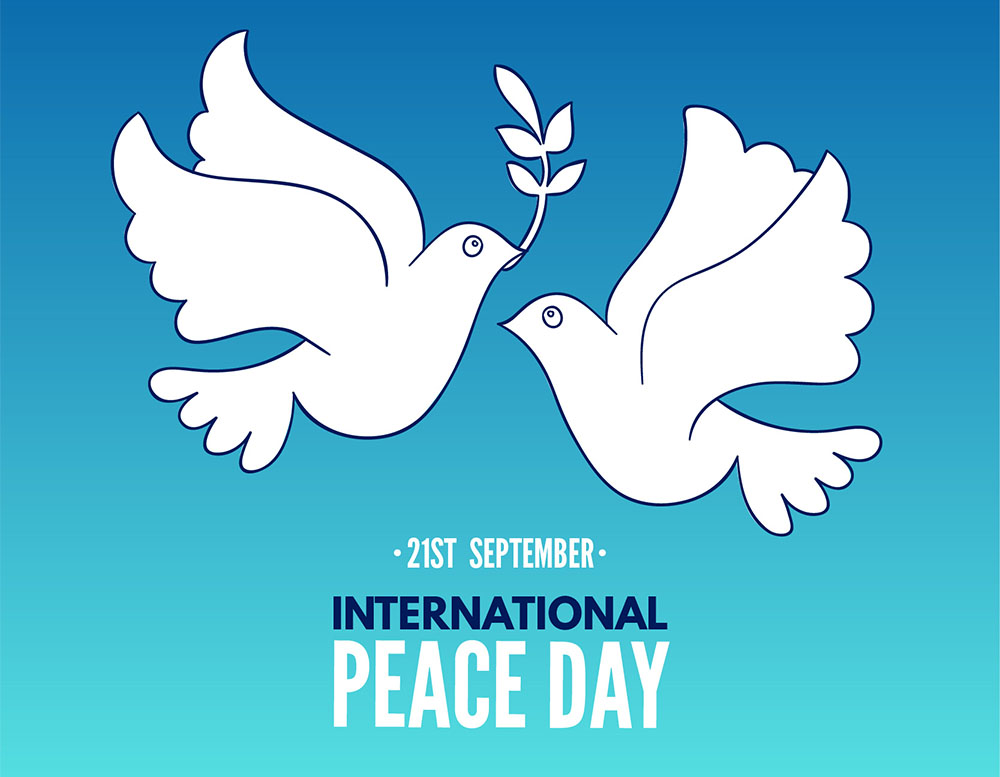
Sudan: More War on World Peace Day
By Al-Zein Osman
At the very moment when the world was celebrating World Peace Day, the eyes and ears of Sudanese citizens were fixed on the official pages of the leader of the Rapid Support Forces, General Dagalo, and the United Nations General Assembly hall, where the Commander-in-Chief of the Sudanese Army, General Abdel Fattah al-Burhan, were present. Both have been engaged in a battle since mid-April.
The two men addressed the world to clarify their perspectives on the war and ways to stop it.
Without adding anything new beyond his appearance in a recorded video, unlike previous times, General Dagalo, in his speech, which he claimed was directed at the United Nations General Assembly, accused the army commander and remnants of the former regime of forcing him and his forces into the war.
In his address to the United Nations General Assembly, the army commander stated that his forces were engaged in a battle against the rebellion of his former deputy. He called on the world to classify the Rapid Support Forces as a terrorist group and to deal with them on this basis.
On World Peace Day, both parties expressed their desire to end the war in the country, a demand that has been echoed by world leaders and reiterated by U.S. Assistant Secretary of State for African Affairs, Molly Fee, after her meeting with al-Burhan. She said to him, The parties must stop the war, and continued, The Sudanese deserve freedom, peace, and justice.
What the American vision articulated is what the Sudanese people have wanted since they toppled Omar al-Bashirs regime four years ago. This raises the question: How did the Sudanese react to the speeches of the war leaders?
The reaction to Hemetis speech on social media and TV channels revolved around the debate following the outbreak of clashes and the search for an answer to the question: Is he alive or dead?
Although the commander of the Rapid Support Forces expressed his willingness to negotiate to end the war by responding to the proposed initiatives, his speech lacked what people were eagerly waiting for—the indication that his soldiers would leave the homes of civilians and hospitals.
In reality, Sudanese people are not concerned about whether Hemeti is alive or dead as long as his soldiers are in the streets and homes.
Meanwhile, the army commanders speech at the United Nations General Assembly turned into another platform for conflict. Those who support him saw his presence in New York as a defeat for his opponents. They believed that as soon as he spoke there, he gained legitimacy as Sudans representative on the international stage, potentially enabling him to move forward with forming his government, as he had previously hinted at.
On the other hand, opponents of the man saw his participation there as another defeat for the country and its suffering people, especially in the face of the senseless war. This is particularly true since his speech went beyond addressing the peoples yearning for peace and stability. It represented the start of yet another phase in the journey of a man who switches boats without a sense of guilt. He spoke about the violations of the Rapid Support Forces but ignored the violations committed by the side he leads in the same war.
Both generals have concluded their speeches and sent their messages to those who matter, while we await the outcomes and results of what has been said. At a time when death tolls continue to rise, hospital conditions worsen, and Sudanese children continue to pay the price of war, the situation remains dire, and the houses of citizens, if not hit by airstrikes, fall victim to looting in a war once referred to as senseless and is now described as an ongoing personal war without end.
On World Peace Day, the speeches of the war generals do not seem to serve as a reassuring haven that the Sudanese people can build upon, especially since these speeches are more for external consumption than for the domestic audience.

